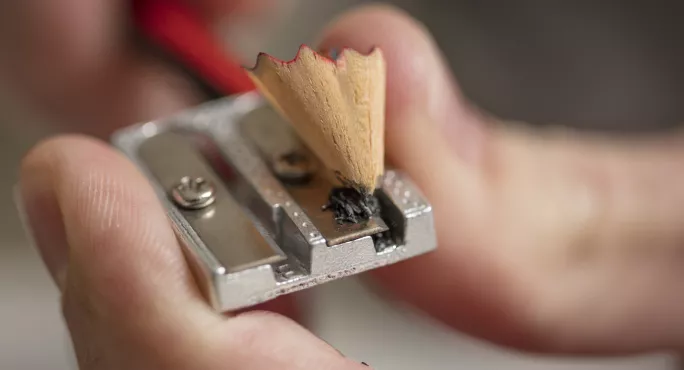- Home
- How to reduce your marking in primary
How to reduce your marking in primary

Earlier this year, I wrote a piece discussing how, as a school, we moved towards a feedback-focused marking policy in maths.
This clearly resonated with many teachers, and I was contacted by several from across the country asking for guidance on implementation.
Quick read: We must end this obsession with marking
Quick listen: What you need to know about early maths teaching
Want to know more? Maths skills and maths understanding shouldn’t be in conflict
In order to reach as many professionals as possible, I have compiled a list of some of the barriers that might need to be overcome in order to successfully implement a reduced marking policy.
Are staff equipped for change?
Some training may be needed to ensure that quality feedback is delivered by all staff. Do all teachers have a clear understanding of the different types of feedback that could be given?
For example, pupils learning the early stages of new material are likely to require much more in the way of task-oriented feedback than those who are reasonably proficient at a skill.
Being able to match appropriate feedback to need can be a difficult skill to develop. But shifting from a marking emphasis to a feedback emphasis demands it.
Before we embarked on changing our policy, staff had already undergone CPD on delivering effective feedback which prepared them for the changes to come.
Are staff and students ready to change?
Change can be frightening, and overwhelming. Some teachers will only ever have marked by leaving comments on multiple pieces of work each week.
The transition to giving pupils ownership over self and peer correction can be daunting, especially as it means relinquishing a certain amount of control and responsibility over the learning that is being undertaken.
To expect all teachers to be able to do this immediately is unrealistic, so consider what support might need to be put in place. I changed the emphasis of book scrutiny and monitoring so that it became a half-termly CPD session as much as a look at the quality of pupil work.
In these sessions I focused on what impact the policy was having on the outcomes for pupils, as well as what else I could do to support the process.
Similarly, pupils will need to be guided and taught about the shift in emphasis, especially those who have previously used teachers’ written comments as a benchmark of their performance.
It helped us that we had done lots of work with pupils on developing positive learning dispositions, such as resilience, resourcefulness and being reflective, as these underpinned the behaviours pupils would need to exhibit to get the most out of the new approaches.
Engaging with parents will also help, as come parents’ evening or regular book looks they will want to know why the level of marking in the books looks markedly different to previous weeks.
Make effective feedback high profile (but be transparent)In order to demonstrate that we were fully invested in making this work, leaders in the school spent lots of time in and around lessons, talking to pupils and staff and gathering evidence.
This was designed not to make judgements on teachers, but to help them to implement the policy successfully, identify CPD needs and provide support for those who needed it.
Over the year and a half that we have been refining the policy, this has been a springboard for a large number of purposeful, professional conversations, with the purpose of bringing the whole staff voice into how the policy was working.
If at first you don’t succeed…
Even with all of the aforementioned barriers tackled, it is unlikely that the policy will work perfectly in its first, second or even third iterations. Throughout the evolution of the policy, we have repeatedly thrown it back to teachers and pupils to find out what is working well and what could be improved.
These group discussions have been particularly valuable in getting teachers across phases to discuss how they deliver feedback, what the implications of the policy are across the school and helping to come to a common consensus on ways forward.
If you really want it to succeed, the input from professionals on the ground; those who are working with it on a daily basis, will be vital in bringing everyone along for the ride.
Jon Parsons is deputy headteacher at White Meadows Primary Academy
Register with Tes and you can read two free articles every month plus you'll have access to our range of award-winning newsletters.
Keep reading with our special offer!
You’ve reached your limit of free articles this month.
- Unlimited access to all Tes magazine content
- Save your favourite articles and gift them to your colleagues
- Exclusive subscriber-only stories
- Over 200,000 archived articles
- Unlimited access to all Tes magazine content
- Save your favourite articles and gift them to your colleagues
- Exclusive subscriber-only stories
- Over 200,000 archived articles



